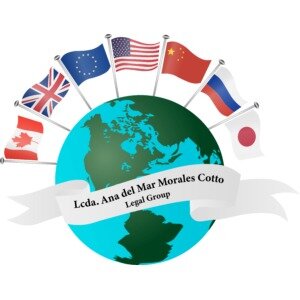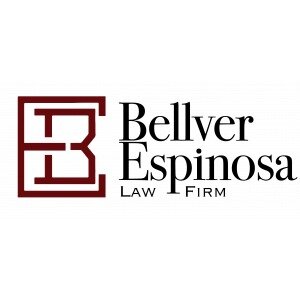Best Energy Regulatory Law Lawyers in Puerto Rico
Share your needs with us, get contacted by law firms.
Free. Takes 2 min.
Or refine your search by selecting a city:
List of the best lawyers in Puerto Rico
About Energy Regulatory Law in Puerto Rico
Energy Regulatory Law in Puerto Rico governs the generation, transmission, distribution, and consumption of energy throughout the territory. This legal field encompasses statutes, regulations, and guidelines that control the production and use of energy, ensure the reliability of public utilities, promote renewable resources, and safeguard the interests of consumers and the environment. The unique energy landscape of Puerto Rico, including its transition from fossil fuels to renewable sources and the modernization of its power grid, makes energy regulation especially significant for residents and businesses alike.
Why You May Need a Lawyer
There are several situations where individuals or organizations may require legal assistance in the area of Energy Regulatory Law in Puerto Rico:
- Understanding or disputing your rights as a utility consumer
- Negotiating renewable energy contracts or interconnection agreements
- Challenging unfair utility rate hikes or service issues
- Obtaining permits to install solar panels or other renewable energy systems
- Complying with regulatory requirements for energy projects
- Representing residential communities affected by power outages or grid failures
- Navigating the legalities of independent power production
- Responding to enforcement actions from governmental regulators
Legal professionals with experience in Puerto Rico's energy sector can help clarify complicated regulations, advocate for your rights, and steer you through administrative or court proceedings.
Local Laws Overview
Energy law in Puerto Rico is shaped by several key laws and regulatory bodies:
- Puerto Rico Energy Public Policy Act (Act 17-2019): This groundbreaking law establishes a path toward 100 percent renewable energy generation by 2050, mandates minimum renewable use targets, and modernizes energy regulation.
- Puerto Rico Energy Bureau (PREB): The PREB is the chief regulatory authority overseeing energy companies, reviewing rate cases, issuing guidelines for renewable integration, and monitoring service quality.
- Puerto Rico Electric Power Authority (PREPA): Although PREPA has historically managed the island’s electric grid, recent reforms have introduced private operators and increased regulatory oversight.
- Distributed Generation Regulation: Special rules apply for customers installing solar panels or other forms of on-site generation, including net metering and permitting procedures.
- Federal Oversight: Due to the Financial Oversight and Management Board (FOMB) and bankruptcy proceedings, some federal laws and court orders may impact local energy projects and contracts.
Understanding the interplay of these laws, agencies, and rules is essential for anyone involved in energy projects or disputes in Puerto Rico.
Frequently Asked Questions
What is the Puerto Rico Energy Bureau and what does it do?
The Puerto Rico Energy Bureau is the island’s main regulatory entity that oversees energy service providers, sets regulations for electricity production and distribution, and enforces standards to protect consumers.
Can I install solar panels on my home or business?
Yes, but you must comply with local permitting requirements and regulations, including those related to safety, interconnection with the electric grid, and net metering agreements.
What is net metering and is it available in Puerto Rico?
Net metering allows solar system owners to receive credit for excess electricity sent back to the grid. Puerto Rico’s laws require utilities to offer net metering to qualifying customers.
Who regulates electricity rates in Puerto Rico?
The Puerto Rico Energy Bureau reviews and approves changes to electricity rates proposed by energy companies such as PREPA or private operators.
What rights do consumers have if there are frequent power outages?
Consumers have the right to reliable service as guaranteed by local law. They can file complaints with the Energy Bureau and may be entitled to compensation depending on the circumstances.
Are there incentives for renewable energy adoption?
Yes, Puerto Rico offers different incentives, rebates, and financing options to encourage the adoption of renewable energy systems, subject to eligibility requirements.
Can I challenge a utility bill or rate increase?
Consumers can dispute bills and rate increases through complaint mechanisms with the utility provider and the Puerto Rico Energy Bureau, which investigates and resolves disputes.
What role does the federal government play in Puerto Rico's energy sector?
The federal government may intervene through disaster recovery funding, the Financial Oversight Board, and courts overseeing PREPA’s restructuring. Some federal energy standards and grants also apply.
Do businesses need special permits for large-scale energy projects?
Yes, large-scale energy projects typically require multiple permits from local agencies, environmental clearances, and compliance with regulatory standards, which an attorney can help navigate.
How do I file a complaint about my energy service?
Consumers can file complaints directly with their utility provider or escalate the issue to the Puerto Rico Energy Bureau, which provides an official process for investigation and resolution.
Additional Resources
- Puerto Rico Energy Bureau (Negociado de Energía de Puerto Rico): Regulates the energy sector, investigates complaints, and offers guidance on energy regulations.
- Puerto Rico Electric Power Authority (PREPA): Entity responsible for electric service provision and infrastructure.
- Department of Consumer Affairs (DACO): Protects consumer rights, including in utility matters.
- Financial Oversight and Management Board for Puerto Rico (FOMB): Monitors financial and structural reforms affecting the energy sector.
- Nonprofit Organizations: Groups such as the Institute for Energy Economics and Financial Analysis (IEEFA) and local consumer advocacy organizations publish guides and updates on energy regulation in Puerto Rico.
Next Steps
If you need legal assistance with Energy Regulatory Law in Puerto Rico, consider these steps:
- Gather Documentation: Collect contracts, utility bills, permits, correspondence, and any records related to your energy issue.
- Identify the Specific Issue: Clearly define the problem or goal, whether it is a dispute, a regulatory question, or a project proposal.
- Research Local Lawyers: Look for attorneys or law firms with experience in energy regulatory matters specific to Puerto Rico.
- Consult with a Specialist: Schedule a consultation to review your situation, understand your rights, and discuss possible legal strategies.
- Follow Official Procedures: Your lawyer can help you file complaints, draft contracts, pursue permits, or initiate legal proceedings as needed.
Navigating Energy Regulatory Law can be complex, but with proper guidance and legal support, you can protect your rights and achieve your objectives within Puerto Rico’s evolving energy landscape.
Lawzana helps you find the best lawyers and law firms in Puerto Rico through a curated and pre-screened list of qualified legal professionals. Our platform offers rankings and detailed profiles of attorneys and law firms, allowing you to compare based on practice areas, including Energy Regulatory Law, experience, and client feedback.
Each profile includes a description of the firm's areas of practice, client reviews, team members and partners, year of establishment, spoken languages, office locations, contact information, social media presence, and any published articles or resources. Most firms on our platform speak English and are experienced in both local and international legal matters.
Get a quote from top-rated law firms in Puerto Rico — quickly, securely, and without unnecessary hassle.
Disclaimer:
The information provided on this page is for general informational purposes only and does not constitute legal advice. While we strive to ensure the accuracy and relevance of the content, legal information may change over time, and interpretations of the law can vary. You should always consult with a qualified legal professional for advice specific to your situation.
We disclaim all liability for actions taken or not taken based on the content of this page. If you believe any information is incorrect or outdated, please contact us, and we will review and update it where appropriate.
Browse energy regulatory law law firms by city in Puerto Rico
Refine your search by selecting a city.












